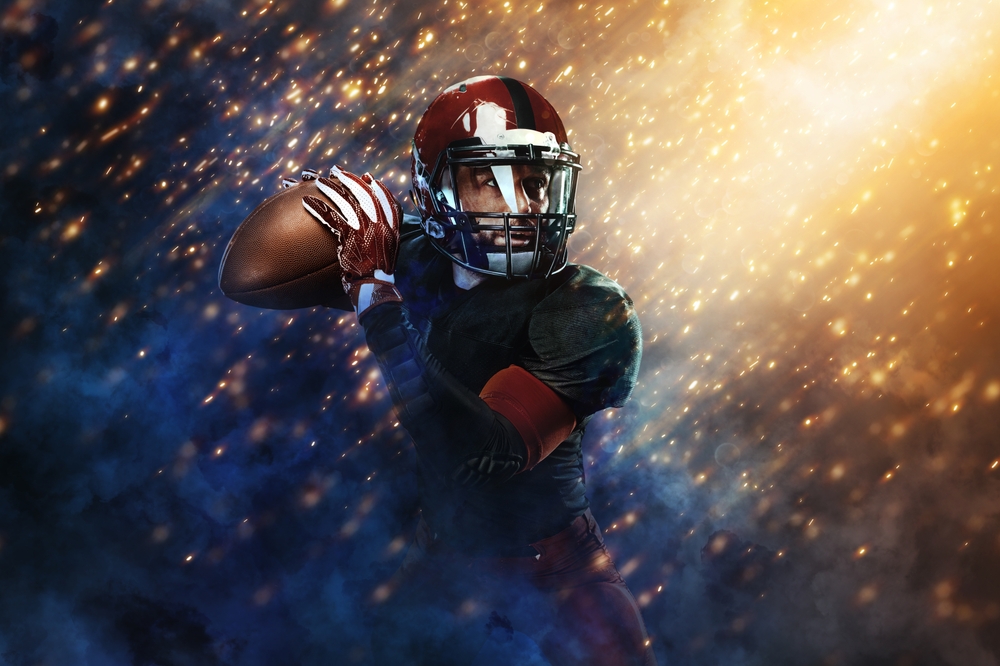The Super Bowl, the championship game of the National Football League (NFL), is a pivotal event in American sports culture and is widely regarded as an unofficial national holiday. It marks the culmination of the NFL season and pits the winners of the AFC (American Football Conference) and the NFC (National Football Conference) against each other. The timing of the Super Bowl is traditionally on the first Sunday in February, which allows for the completion of the regular season and playoff rounds.
Determining the exact date of the Super Bowl requires consulting the NFL schedule for the current season. For example, the Super Bowl in 2023 was held on February 12, while the 2024 game is scheduled to take place on February 11. The event’s location rotates among different cities’ stadiums that are chosen by the NFL well in advance, contributing to the Super Bowl’s status as a major event in both the sporting and cultural calendars.
Television broadcasts of the Super Bowl consistently rank among the most-watched programs of the year, with millions of viewers tuning in not only for the game but also for the high-profile commercials and halftime entertainment. The Super Bowl’s significant viewership reflects its impact, extending beyond sports to influence commercials, music, and pop culture.
Super Bowl Date and Time
The Super Bowl is traditionally scheduled on a Sunday. For the upcoming event, the Super Bowl LVIII will occur on February 4, 2025. The kickoff time is typically set at 6:30 PM Eastern Standard Time (EST), which allows viewers from coast to coast to tune in during the evening hours.
When to Watch:
- Eastern Standard Time (EST): 6:30 PM
- Central Standard Time (CST): 5:30 PM
- Mountain Standard Time (MST): 4:30 PM
- Pacific Standard Time (PST): 3:30 PM
Broadcast networks adjust their programming to accommodate this annual event, often with pre-game shows beginning several hours before the kickoff to provide viewers with in-depth analysis, interviews, and entertainment.
| Time Zone | Kickoff Time |
|---|---|
| Eastern (EST) | 6:30 PM |
| Central (CST) | 5:30 PM |
| Mountain (MST) | 4:30 PM |
| Pacific (PST) | 3:30 PM |
| Alaska (AKST) | 2:30 PM |
| Hawaii (HST) | 1:30 PM |
The game is aired live across various platforms, including TV broadcasts, streaming services, and radio, ensuring that fans have multiple ways to experience the event. Viewership for the Super Bowl is substantial, not only in the United States but internationally, making it one of the most-watched sporting events worldwide.
Teams Competing in the Super Bowl
The Super Bowl features a championship face-off between the American Football Conference (AFC) and the National Football Conference (NFC) champions. Each team represents their respective conference after having navigated through the regular season and emerging victorious in their playoff games.
The AFC and NFC champions are determined after the end of the regular season through a series of playoff rounds. These rounds are contested by teams who have qualified based on their regular season records and subsequent success in the postseason.
| Conference | Champion Team |
|---|---|
| AFC | TBA |
| NFC | TBA |
It should be noted that as of the current date, the specific teams competing in the upcoming Super Bowl have not yet been decided. The determination of the teams occurs in late January, following the completion of the AFC and NFC Championship games. The outcome of these decisive games reveals the two teams that will compete for the coveted Vince Lombardi Trophy in the Super Bowl.
The franchises that reach the Super Bowl have proven their mettle through a rigorous test of talent, strategy, and endurance. Both teams, once announced, will have had to outplay strong competitors and are typically regarded as the best in their conferences for that season.
Halftime Show Information
The Super Bowl halftime show is a significant aspect of the event, often featuring prestigious musical performances. The show provides entertainment for viewers at the stadium and those watching the broadcast. It typically lasts about 30 minutes.
Who performs?
The halftime show performers are usually announced several months in advance and are chosen for their popularity and performance abilities.
Past Performers:
- 2023: Rihanna
- 2022: Dr. Dre, Snoop Dogg, Eminem, Mary J. Blige, and Kendrick Lamar
- 2021: The Weeknd
- 2020: Shakira and Jennifer Lopez
Production:
The production of the show involves complex logistics, with staging and technology that rivals large-scale concerts.
Viewership:
Halftime show ratings often exceed that of the game itself, demonstrating its broad appeal.
Sponsorship:
The halftime show has had a history of sponsorship, and these sponsors help fund the elaborate performances.
Venue and Location Details
The Super Bowl is scheduled to take place at the Allegiant Stadium, located in Paradise, Nevada, an unincorporated town within the Las Vegas Valley. Opened in July 2020, this state-of-the-art venue boasts a seating capacity of 65,000, which can expand to accommodate up to 72,000 for special events such as the Super Bowl.
Key Features of Allegiant Stadium:
- Retractable natural turf field: Ensures versatile playing conditions.
- Transparent roof: Offers an outdoor feel with indoor comfort.
- Large operable walls: Provide view of the Las Vegas Strip.
Transport and Access:
- Airport: Allegiant Stadium is conveniently positioned 2.5 miles from McCarran International Airport.
- Parking: There are about 13,000 parking spaces available in the stadium’s vicinity.
- Public Transit: Multiple local bus services provide access to the stadium area.
The area surrounding the stadium has been enhanced to accommodate the influx of fans, guaranteeing a seamless experience from arrival to departure. The city of Las Vegas is well-equipped to host an event of this magnitude, with its extensive hospitality infrastructure and entertainment options adding to the allure of the Super Bowl venue.
How to Watch the Super Bowl
The Super Bowl can be watched through a variety of channels. Viewers may choose to watch the game on network television, where it is typically broadcast nationally. Availability often rotates annually among major networks such as CBS, NBC, and FOX.
For those who prefer streaming, options include the NFL app, network streaming services, or subscribing to streaming platforms that carry live TV, like Hulu + Live TV, YouTube TV, or Sling TV. These services usually require a fee but may offer free trials for new subscribers.
Fans interested in watching from outside the United States can turn to international broadcasters. The Super Bowl is internationally syndicated, so local broadcasting stations around the world may also air the event live. It’s important to check local listings for the correct channel and broadcast time in one’s region.
Here’s a quick guide to finding the right option:
- Network TV: Check local listings for the channel.
- Streaming: Download the app or visit the website of a streaming service. Subscriptions may be required.
- International: Consult local TV guides or sports networks.
Finally, sports bars and restaurants may also showcase the game live. This could be an alternative for those who prefer a communal viewing experience. Advance booking is recommended as these venues tend to be busy on game day.
Ticketing and Attendance
The Super Bowl is one of the most sought-after events for sports enthusiasts, leading to a competitive ticketing market. Tickets for the game are typically distributed through the NFL, with a portion allocated to each participating team and a percentage reserved for host city residents, sponsors, and the media. The majority of tickets are sold to the general public via a lottery system or through official ticketing partners.
Attendance numbers often surpass 70,000 spectators, depending on the venue’s capacity. The hosting stadium plays a critical role in the number of attendees, with larger stadiums allowing for a greater audience. It is common for stadiums to reach near full capacity during the event.
For those interested, here is a snapshot of information regarding ticket acquisition and attendance variety:
- Distribution Channels:
- NFL and Teams: 75%
- Host City, Sponsors, Media: 25%
- General Public Sales: Lottery, Official Partners
- Stadium Capacity: Varies (e.g., 65,000 – 80,000+ seats)
- Typical Sell-Out Status: Near or at full capacity
Prices for tickets can fluctuate significantly, influenced by demand, seat location, and additional package offerings. Premium seats and VIP packages offer enhanced experiences, such as pre-game field access or post-game celebrations, contributing to the diverse pricing structure.
- Price Range: Wide spectrum depending on seat and package
Purchasing tickets from unauthorized sellers is risky, and fans should adhere to official channels to ensure authenticity. Enhanced security measures and digital ticketing have been implemented to combat counterfeit tickets and streamline entry on game day.
Super Bowl History
The Super Bowl is the annual championship game of the National Football League (NFL), typically held on the first Sunday in February. It is the culmination of the regular season that begins in the late summer of the previous year.
The first Super Bowl was played on January 15, 1967, when the NFL’s Green Bay Packers defeated the American Football League’s (AFL) Kansas City Chiefs. This game was originally called the AFL-NFL World Championship Game.
- Super Bowl I (1967): Green Bay Packers 35, Kansas City Chiefs 10
- Super Bowl II (1968): Green Bay Packers 33, Oakland Raiders 14
- Super Bowl III (1969): New York Jets 16, Baltimore Colts 7
Super Bowl III is particularly notable as it featured the first AFL team to win the championship, the New York Jets, which led to an increase in the AFL’s credibility.
In 1970, a merger of the NFL and AFL took full effect and the Super Bowl became the NFL’s championship game. Since then, the game has grown in popularity and has become a cultural phenomenon, often featuring elaborate halftime shows and commercials.
- Super Bowl XX (1986): Chicago Bears 46, New England Patriots 10
- Super Bowl XXX (1996): Dallas Cowboys 27, Pittsburgh Steelers 17
- Super Bowl L (2016): Denver Broncos 24, Carolina Panthers 10
These games signify milestones in Super Bowl history, marking the 20th, 30th, and 50th championship games, respectively. The Super Bowl continues to draw significant attention, with viewership often exceeding 100 million, making it one of the most-watched sporting events worldwide.
Pre-Game Events
The Super Bowl is not only about the game itself; the pre-game festivities are a significant part of the experience. The NFL Tailgate Party is an exclusive event where guests enjoy live entertainment, celebrity chef tastings, and interviews with NFL legends.
Entertainment builds up with the Super Bowl Pregame Concert, featuring performances by top artists that energize fans before kickoff. These performances are a central part of the pre-game celebration and are often broadcast live.
Another key element is the Patriotic Displays, including military flyovers and the singing of the national anthem. The chosen performer’s rendition of “The Star-Spangled Banner” is highly anticipated and often discussed for its emotional and vocal prowess.
| Pre-Game Event | Description |
|---|---|
| NFL Tailgate Party | Live music, food, and NFL alumni |
| Super Bowl Pregame Concert | Performances by headline artists |
| Patriotic Displays | National anthem and military tributes |
Teams are introduced onto the field with much fanfare, accompanied often by fireworks and cheering from the stands. This is a moment of high energy, as supporters of both teams anticipate the start of one of the year’s biggest sporting events.
Advertising and Commercials
The Super Bowl carries a legacy for its premium advertising slots with 30-second commercials often costing millions of dollars. Advertisers prepare months in advance to ensure their spots make a memorable impact.
- Audience Reach: The game consistently attracts over 100 million viewers, offering a vast audience.
- Cost: In recent years, the cost for a 30-second slot has reached as high as 5 million dollars.
- Innovative Spots: Companies strive to create ads that resonate with viewers, often employing humor, emotional narratives, or celebrity endorsements.
| Year | Cost of 30s Ad Slot | Noteworthy Brands |
|---|---|---|
| 2020 | $5.6 million | Pepsi, Amazon |
| 2021 | $5.5 million | Budweiser, Doritos |
| 2022 | $6.5 million | Toyota, Coca-Cola |
The commercials are frequently one of the most discussed aspects of the game, with audiences tuning in not just for the sport, but for the innovative marketing. Ads released during the Super Bowl can become cultural touchstones, and achieving virality is often seen as a hallmark of success. Marketing campaigns extend beyond the broadcast, with brands leveraging social media to amplify their message. In essence, the Super Bowl functions as a paramount event for both football and advertising industries.
Post-Game Analysis
The Super Bowl concludes with a flurry of analytical discussion, breaking down the key strategies and plays that defined the game’s outcome. Analysts scrutinize the performance of the players, assessing both the standout contributions and the missed opportunities.
- Offensive Execution: The quarterback’s passing accuracy, the running back’s yardage gains, and the offensive line’s protection are evaluated to gauge the efficiency of the offensive gameplay.
- Defensive Dynamics: A focus on the defensive team’s ability to restrict the opponent’s advance, including sacks, interceptions, and forced turnovers, provides insight into the game’s turning points.
In terms of coaching, tactical decisions are dissected to understand their impact on the flow of the game. Was the play-calling aggressive enough? Did the coaches adjust their strategies effectively during halftime? These questions guide the post-game narrative.
Special teams often receive credit for their contribution to field positioning and points scored through field goals. Their performance is a critical component of the overall analysis.
| Aspect | Details |
|---|---|
| Key Players | Standout performers are highlighted, with specific plays cited as examples of their influence on the game. |
| Injuries | Any significant injuries that may have impacted team performance are reported. |
| Statistics | Important game statistics are presented to support evaluations of team and individual performances. |
The analysis wraps up with lessons learned, understanding that each Super Bowl provides a multitude of teachable moments for teams across the league. It is through this meticulous scrutiny that fans and experts alike anticipate the potential trajectory of teams for the forthcoming season.
Economic Impact of the Super Bowl
The Super Bowl generates significant economic benefits for the host city. The influx of visitors leads to increased spending in local businesses, particularly in the hospitality and service sectors. Hotels, restaurants, and transportation services often experience a surge in demand.
Direct Spending: Attendees at the Super Bowl can directly impact the economy by spending on accommodations, food, and entertainment. On-average, this spending can reach upwards of $100 million for the host city.
- Hospitality: Hotel occupancy rates soar as visitors look for places to stay.
- Merchandising: Sales of NFL merchandise and team-specific paraphernalia rise.
Indirect Impact: The local economy also benefits indirectly. For example, the production of Super Bowl-related goods and services creates jobs and generates additional economic activity.
- Employment: Temporary jobs in event services and retail increase.
- Tax Revenue: Local and state tax revenues can see a bump from sales and tourism.
Future Benefits: The visibility of hosting a Super Bowl can have long-term effects on a city’s reputation, potentially leading to future tourism and business opportunities.
- Infrastructure: Improvements often made for the event have lasting benefits.
- Brand Exposure: The city gains international exposure which may increase future tourist interest.
Economic analysis must also consider the costs for the city, including increased security and potential disruptions to local residents and businesses. These factors can affect the net economic impact of hosting the Super Bowl.



